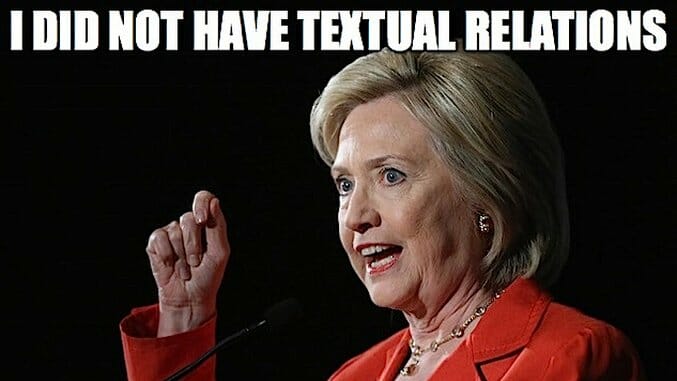How Memes Perfectly Capture What’s Wrong With Our Political Engagement

What are memes? Urban Dictionary calls them “Popular quotes, images, and real people, which are copied, imitated, and spread all over the Internet(s)!”
Interestingly enough, it neglects to mention that those quotes are generally made up, in order to emphasize a humorous or political point that contrasts with or embellishes the image they’re blazoned across.
In one way, memes are perfect for capturing the developments of this election cycle. Not in the way you might think, though, because what memes are perfect at capturing is the reductive and simplistic way the American electorate loves to engage with politics.
In that sense, they perfectly sum up what’s wrong with the 2016 election season.
Take, for example, this meme bashing Hillary Clinton supporters as being stupid for not knowing how to capitalize, this one showing Bernie Sanders as insisting he will pay for education with “Pixie dust”, this one that attests that Hillary voting twice for the Patriot Act shows she doesn’t support privacy, this one contrasting where Clinton and Sanders “were” in the 1960’s, or this one, that, well, throws around terms like socialist and murderer for some reason.
Needless to say, memes and their political variations are some of the most widely shared and popular items on the Internet, and given the increasing number of websites that allow anyone to create them, the sheer number and their variants is only likely to increase.
I was speaking to a friend this week about writing this article, and she took me to task for critiquing memes. She argued that they are made by the already politically informed often as a way to find humor in light of the seriousness of politics, to be shared amongst a peer group as an amusing anecdote commenting on a perceived absurdity.
-

-

-

-

-

-

-

-

-

-

-

-

-

-

-

-

-

-

-

-

-

-

-

-

-

-

-

-

-

-

-

-

-

-

-

-

-

-

-

-








































